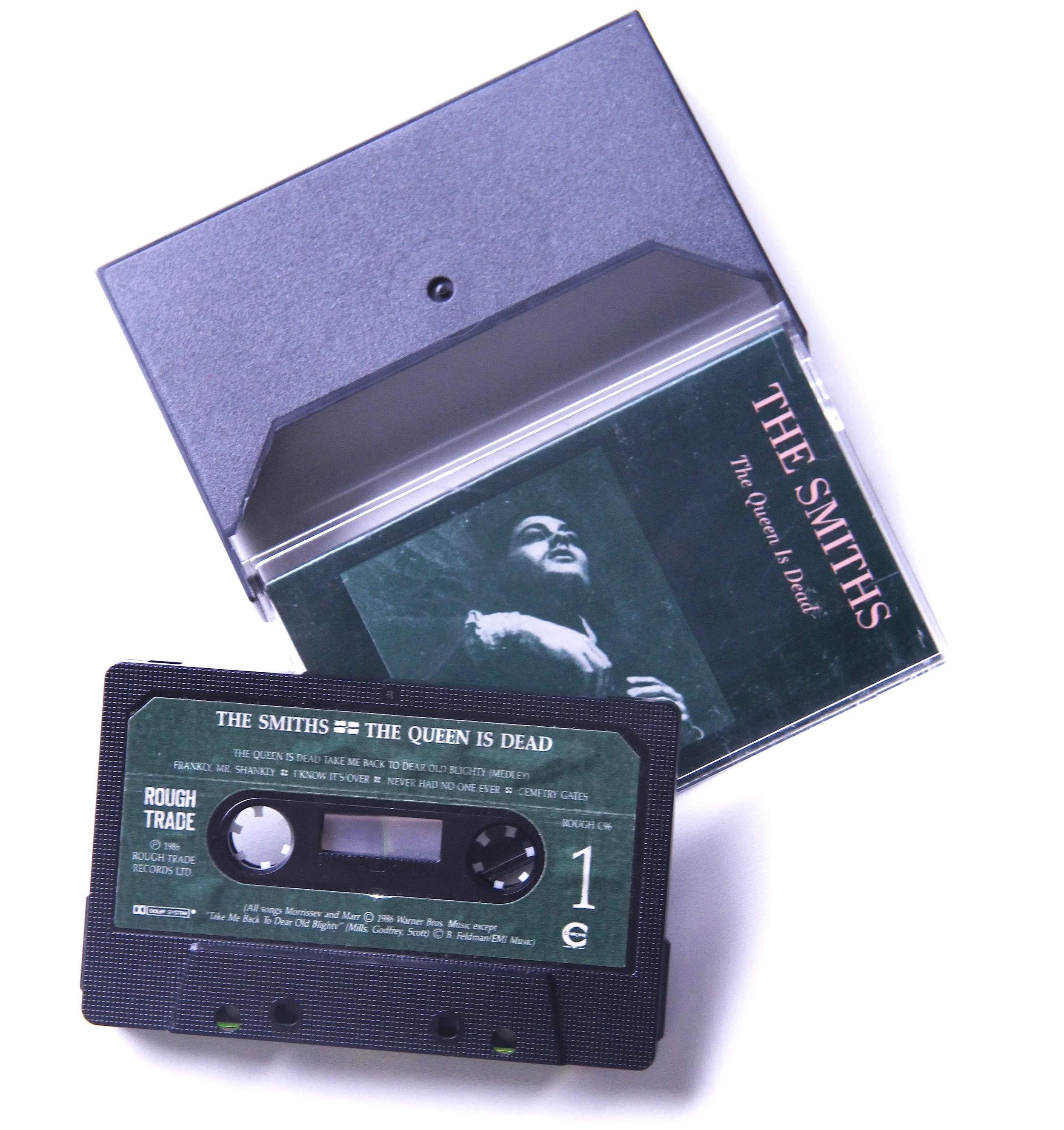The Smiths The Queen Is Dead
“When we went into the Queen is Dead the making of it, the writing of it – I think we all felt that we needed to do something pretty special. Because Meat is Murder, the record before, had gone in at number one and we were starting to really be recognised and given a lot of accolades, I remember thinking ‘right, okay, we’ve got to be better than The Who or as good as the greats really, not just like the greats’. It was quite a daunting prospect. Over the years it’s become known as our most kind of definitive statement really. And as time has gone on I’ve decided to not argue with that really. If that’s what people think then it probably is our definitive statement.”
Johnny Marr
It would not be disingenuous to call The Queen is Dead the greatest album by the greatest band of the 1980s. The ten songs that comprised The Smiths’ finest recording captured Morrissey at his absolute best. On that record, he emerged as the greatest songwriter of his generation. Poignant, comedic and brimming with pathos, it was The Smiths’ high water mark. Guitarist Johnny Marr worked obsessively to create a diverse range of sounds. The Queen Is Dead featured garage rock and music hall, irresistible pop and deft balladeering. Morrissey wrote the finest lyric of his career, in There Is A Light That Never Goes Out, while switching from high-art to low-brow populism with devastating ease. The Smiths were the most important British band of that decade. The Queen Is Dead was their finest release.
The Queen is Dead was one of the most influential albums of the 1980’s. Packed with wit and melancholia, it was a brave, daring and utterly self-assured. Produced by Morrissey and Marr, working alongside engineer Steven Street, it was regarded as the band’s finest work by critics and band members alike. It was The Smiths third album, following their self-titled debut and their successful sophomore recording Meat Is Murder. Full of pain, drama and excoriating truths, it was the antidote to the self-aggrandising rock made by such egocentric mainstream rockers as Bono and Bob Geldof. Keats, Yeats, Wilde and Carry On films were referenced in brilliantly eclectic lyrics that demonstrated Morrissey’s intelligence – and his ability not to take himself too seriously. It later became a key influence on Britpop.
Morrissey and Marr never revisited the peak that they achieved on The Queen Is Dead. The follow up, Strangeways Here We Come, followed 1987, after which the band split. It became one of the most striking and influential albums of the era; a 36-minute symphony that confirmed Morrissey as the most interesting songwriter of his generation and Marr as one of the UK’s greatest musicians.
Contributors:
Johnny Marr, Guitarist, Songwriter / Stephen Street, The Smiths Engineer, Producer / Dr Eoin Devereux, Head of the Dept. of Sociology, University of Limerick / Billy Bragg, singer songwriter and activist / Brett Anderson, Suede / Mani, Stone Roses and Primal Scream / Clint Boon, Xfm Manchester and Inspiral Carpets / Matthew Murphy, The Wombats / Phil Maguire, The Prison Radio Association /Presenter; Ian Camfield / Assistant Producer; Oliver Carter / Exec. Producers; Andy Ashton, Mike Walsh




















